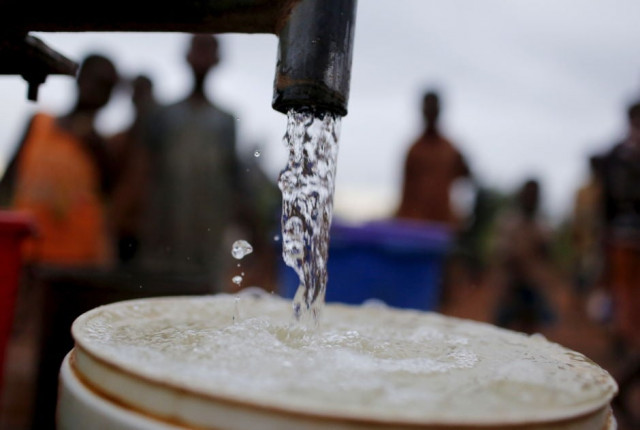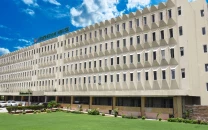New land policy for water project
Federal, Punjab govts to share cost of pipeline from Ghazi-Barotha

A representational image. PHOTO: REUTERS
The Capital Development Authority (CDA) has been tasked with acquiring land for building the project which will bring water from the Indus River at Tarbela Dam to the twin cities of Islamabad and Rawalpindi.
For this purpose, the federal government in the budget for the fiscal year 2020-21, has allocated Rs400 million for carrying out a feasibility study for the first phase of the project.
Since the scheme will also provide water to the Rawalpindi and Chaklala cantonment boards, the cost of the project will be shared equally by the federal and the Punjab government.
Murad discusses water projects of over $1b with World Bank
Moreover, budget documents unveiled last week showed that the government has allocated Rs3.15 billion to acquire land for the first phase of this project. The government aims to acquire some 5,903.55 kanals of land which is 50 metres wide and 44 kilometres long.
Both Islamabad and Rawalpindi are at risk of facing acute water scarcity. With the population of the federal capital more than doubling to over two million and that of Rawalpindi rising to over 5.4 million, the current sources of water for the twin cities are insufficient to meet their needs and shortages of water in the hot and dry summer and winter months has become routine.
The Central Development Working Party (CDWP) of the federal government, had approved the project to lay a 60-kilometre-long and 80 inch-wide pipeline to conduct water from the Indus River System at Tarbela to the twin cities. It will be executed as a public-private partnership (PPP) project, where land for the project will be acquired by the federal and provincial governments equally sharing the costs.
The project to develop a perennial source of potable water supply for Islamabad and Rawalpindi, which can meet its present as well as future needs, was initiated in 2009 for a then estimated cost of Rs17 billion. While the project was pushed to the back burner, it received a major boost in 2016 when the Council of Common Interest (CCI) approved it after Punjab agreed to part with a share of its water under the Indus River System Authority (IRSA). But the project remained stalled until the incumbent government, led by the Pakistan Tehreek-e-Insaf (PTI), came into power. By then, it’s cost had ballooned to around Rs90 billion.
World Bank declares Pakistan's $73m water project unsatisfactory
While a feasibility study for the project was conducted in 2009, the civic authority is seeking to update the decade-old study. For this purpose, the CDA has advertised to contract a consultant. The federal government has earmarked Rs400 million for the purpose, having already allocated Rs500 million in this regard in the outgoing fiscal year 2019-20.
In Islamabad, the main sources of water are reservoirs built at Simly and Khanpur Dams apart from some 192 tube wells and a few waterworks.
Their peak cumulative water production is around 80 million gallons per day (MGD), though peak consumption of water is well over 120 MGD. The water production, though, drops considerably during a drought or in the summer months.
Published in The Express Tribune, June 15th, 2020.



















COMMENTS
Comments are moderated and generally will be posted if they are on-topic and not abusive.
For more information, please see our Comments FAQ